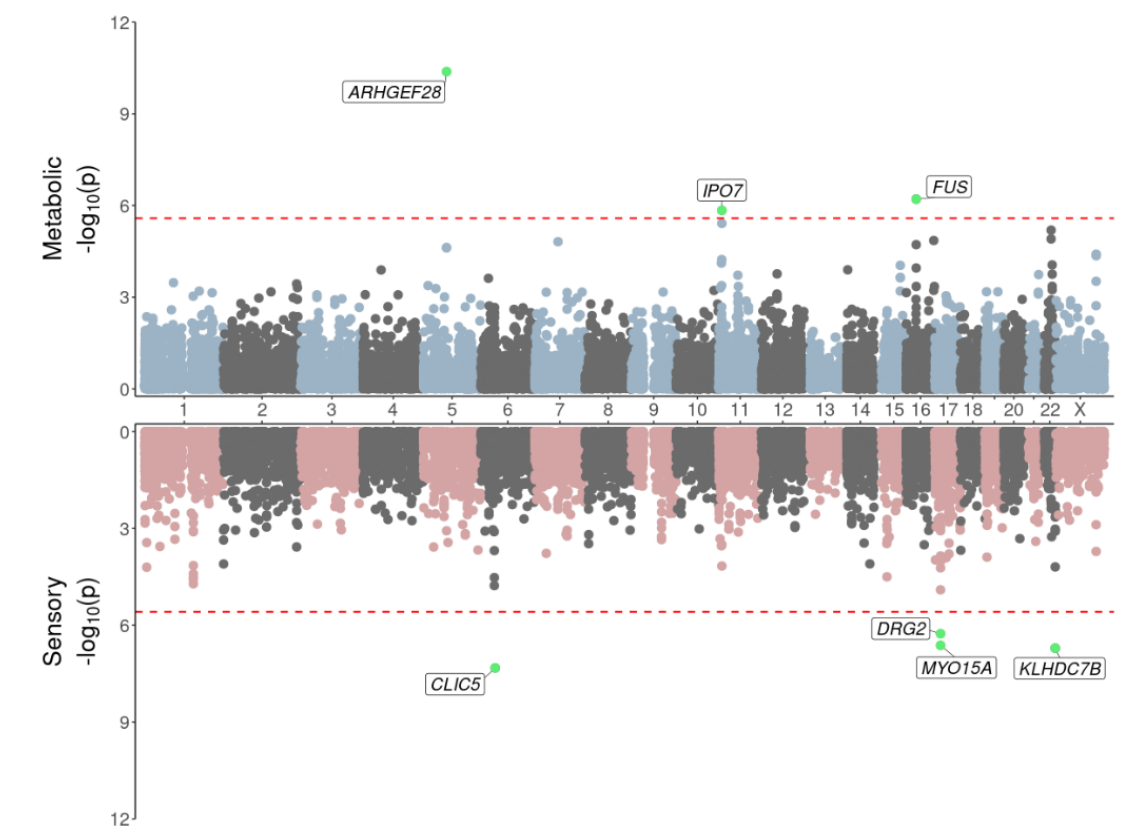Introduction
At the Drögemöller Lab, we are dedicated to advancing our understanding of hearing loss and its broader impacts on health and well-being. Our multidisciplinary team of students, staff, and collaborators leverages cutting-edge technologies and innovative methodologies to explore the genetic and molecular foundations of auditory and neurological conditions. Through our diverse research projects, we aim to develop predictive models and identify therapeutic targets that improve quality of life for individuals with these conditions.
Current Projects
Cisplatin-Induced Ototoxicity
Cisplatin is a widely used chemotherapy drug that, unfortunately, causes hearing loss in up to 80% of individuals treated with this therapeutic. Our research on cisplatin-induced ototoxicity focuses on identifying genetic factors that make some individuals more susceptible to this adverse drug reaction. By mapping how cisplatin affects gene expression in the inner ears of mice and comparing these changes to human genomics data, we aim to develop predictive models and identify possible otoprotective agents to help prevent the occurrence of this adverse drug reaction.
These models will help healthcare providers personalize cancer treatments, minimizing the risk of adverse drug reactions in individuals already suffering the devastating consequences of cancer.
This project is led by Ph.D. student Deanne Nixie Miao and supported by our Research Technician Alana Lamont.
Age-Related Hearing Loss
Age-related hearing loss impacts one-third of adults over 65, yet the genetic underpinnings remain only partially understood. Our age-related hearing loss project utilizes data from over 26,000 participants in the Canadian Longitudinal Study on Aging to estimate different types of hearing loss from audiological data through advanced mathematical modeling.
By conducting genome-wide association studies (GWAS), we have identified distinct genetic factors associated with specific hearing loss subtypes (i.e., sensory and metabolic hearing loss). Integrating these findings with state-of-the-art single-cell multiomic and spatial transcriptomic data allows us to investigate the cell-specific functions of hearing loss genes and uncover the cellular origins of distinct hearing loss phenotypes, paving the way for targeted therapies and preventive strategies.
This project is led by Ph.D. candidate Samah Ahmed.
Age-Related Hearing Loss and Cognition
There is growing evidence linking age-related hearing loss to an increased risk of dementia, but the genetic relationship between these conditions is not well understood. Our research investigates whether shared genetic factors contribute to both hearing loss and cognitive decline.
Using a comprehensive phenotyping strategy that involves highly specific, objective measures of cognition and hearing, in combination with robust genetic data and innovative analysis techniques, we are exploring the causative pathways that may connect age-related hearing loss to dementia. Additionally, we aim to develop a polygenic risk score to predict individuals at higher risk for these conditions, facilitating early interventions that could mitigate the onset of dementia in those with hearing loss.
This project is led by M.Sc. student Andy Van Domelen.

